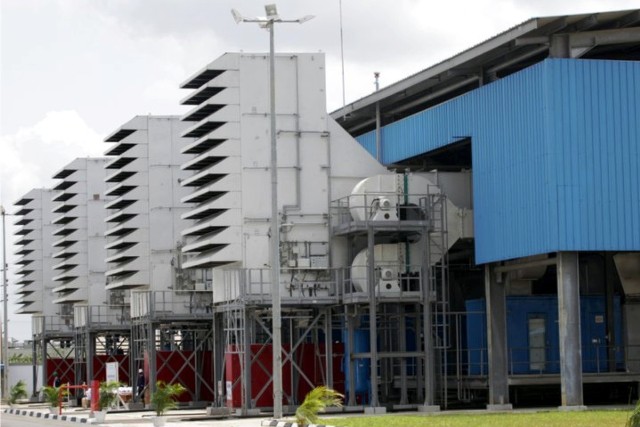Business
BPE To Raise N267bn From Privatisation Of 20 Firms

The Director-General of the Bureau of Public Enterprises, (BPE) Mr. Alex Okoh,says the bureau is posied to raise N266.9 billion from privatization of 20 companies in order to fund the 2020 federal government budget. has advised against re-nationalisation of the nation’s electricity power assets.
He spoke at a breakfast meeting where he presented the bureau’s 2020 Work Plan, Revenue and Expenditure Projections to the media in Abuja, last Saturday.
Responding to concerns over the fate of the privatised power companies, as the National Economic Council, NEC, committee on the review of the sector’s privatization commenced work, Okoh stated: “What I will not advocate, as an individual, is the re-nationalisation of the power sector. I think it will be a fundamental error to go in that direction.”
He added, “The problem, as far as I am concerned, is not the privatization of the DisCos (Electricity Distribution Companies) or the entire value chain. The problem essentially is in the design of the reform of the power sector for privatization. Recapitalising the DisCos, will it solve the problem? Maybe, maybe not. He said that the electricity sector had to be taken more seriously, as according to him, Nigeria, the largest economy in Africa has a mere Electricity per capita of about 150 KWh, compared to South Africa, the continent’s second largest economy,with a record of Electricity per Capita of 4,437 KWh.
He said: “We have not started to even scratch the issue of resolving the problem of power in Nigeria and if we don’t resolve the problem of power, then we are not going anywhere in terms of economic growth in the country. I think we have to be more concerted on resolving the power issue.”
Okoh said that the major problem with the sector was the transmission and distribution, as there was excess capacity in the generation segment of the industry.
He projected that the bureau would raise N266.9 billion from the privatization of 20 companies in order to fund the 2020 federal government budget. The sum of N3.9 billion is expected to be spent on the privatization exercise this year.
He projected a revenue of N268 billion from nine power enterprises including the Yola Electricity Distribution Company; Afam Power Plant; and the Nigeria Integrated Power Plants (NIPPs).
The BPE boss said Post Transaction management unit of the bureau is expected to yield the sum of N1. 987 billion; while Infrastructure and Public Private Partnership sector would be expected to generate N626. 2 million.
According to him, the Development Institutions and Natural Resources sector would yield N440 million; while another N220. 136 million would come from the Industries and Communications sector.
Business
NCDMB, Dangote Refinery Unveil JTC On Deepening Local Content
Business
Food Security: NDDC Pays Counterpart Fund For LIFE-ND Project
Business
Replace Nipa Palms With Mangroove In Ogoni, Group Urges FG, HYPREP
-
Opinion4 days ago
How Reliable Is AI
-

 News4 days ago
News4 days agoRSG Tasks Rural Dwellers On RAAMP …As Sensitization Team Visits Akulga, Degema, Three Others
-
Politics4 days ago
Keyamo Inaugurates Ganduje As FAAN Board Chair
-
Rivers4 days ago
HOS Tasks Rural Dwellers On RAAMP … As Project Sensitization Team Visit Degema, AKULGA
-

 Politics4 days ago
Politics4 days agoReps Constitution Review Committee Holds Zonal Hearing For Rivers, C’River, Akwa Ibom In Calabar
-
Opinion4 days ago
Is Nigeria Democratic Nation?
-

 News4 days ago
News4 days agoI’m Committed To Community Dev – Ajinwo
-

 News4 days ago
News4 days ago2027: I Stand With Southern Presidency -Ortom

